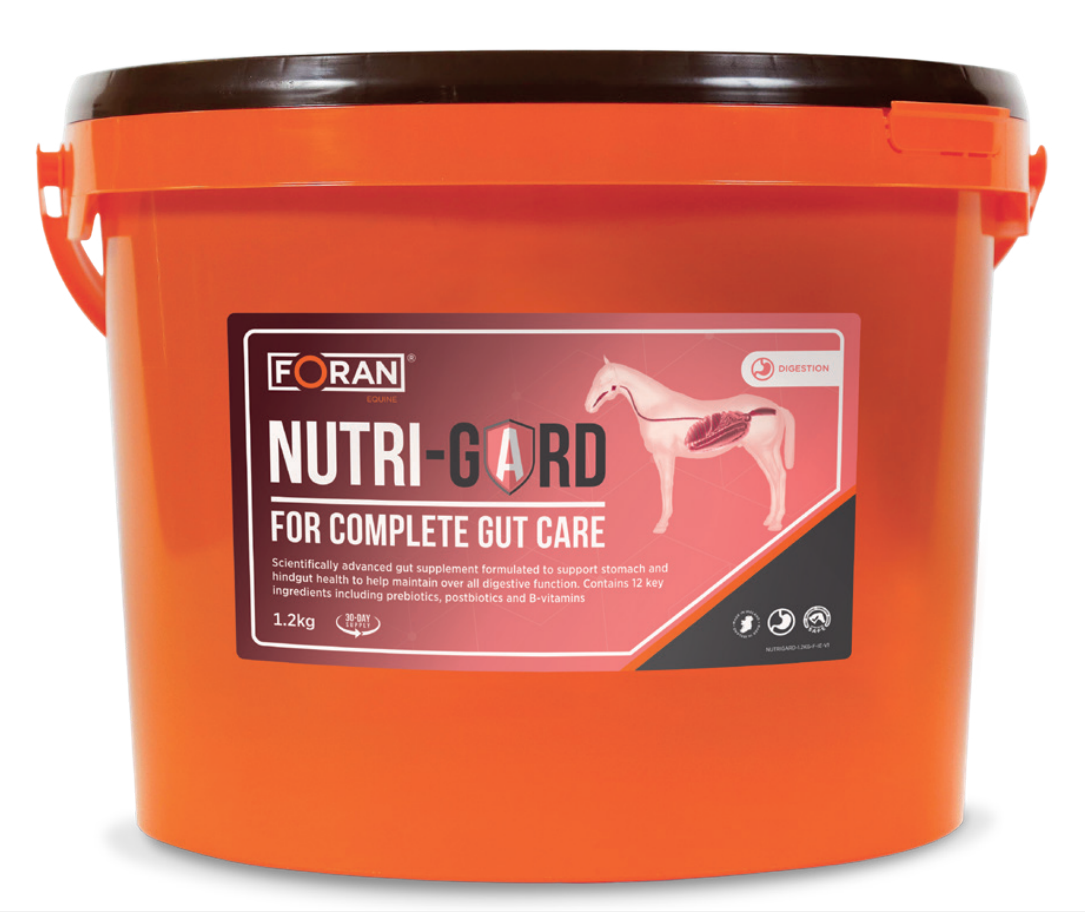Nutri-Gard
Scientifically advanced gut supplement formulated to support stomach and hindgut health and maintain overall digestive function.
View ProductEquine Gastric Ulcer Syndrome (EGUS) is a common concern for performance horses. In actively racing thoroughbreds, the prevalence can be as high as 100%. Gastric ulcers have a detrimental impact on both performance and the overall well-being of horses. However, there are proactive measures you can take to help minimize the risk.
Gastric ulcers occur when there is damage to the lining of the horse’s stomach (the mucosa). The development of gastric ulcers can be influenced by various contributing factors, and based on their location, they are typically categorized as follows:
Your veterinarian can diagnose gastric ulcers, determine their type, and assess their severity through gastroscopy, which involves using a small camera inserted down the throat into the stomach.


Many of the risk factors for EGUS are associated with the lifestyle of a horse in training. For ESGD, factors that increase the risk of acid exposure include:
Diet:


Stress:
– Exercise: The severity of the condition is linked to the intensity and regularity of exercise.
The risk factors for EGGD, while less clearly defined due to an unknown definitive cause, may include:
Several management changes can help reduce the risk of gastric ulcers, although not all are practical for horses in training:

Maintaining overall digestive health is beneficial for horses prone to gastric ulcers. Our Gut balancer, Nutri-Gard is our newly improved formula that contains a unique blend of prebiotics, highly digestible fibres, B vitamins and postbiotics. Its ingredients have been carefully selected as they have been scientifically proven to support the gut & buffer the stomach (pectin & inulin), enhance the appetite (B vitamins), optimise protein/
energy absorption (amino acids) and aid in stress management (postbiotics). Nutri-Gard is intended for any competition horse, any horse that is not thriving, may have stomach issues, has a dull coat, recovering from illness, has had or is on a course of antibiotics, has a fluctuating appetite or is highly strung. The unique inclusion of postbiotics in Nutri-Gard makes it a superior stomach and hindgut supplement for horses. The postbiotics used in Nutri-Gard have been scientifically proven to make the hindgut’s microbiome more robust and less reactive to stress (5)
Contact the Foran Equine Team for further information on using their products to support horses in training. They will be delighted to assist you.
References:

Scientifically advanced gut supplement formulated to support stomach and hindgut health and maintain overall digestive function.
View Product
Group Commercial Manager GCC Region
Based in the UAE, Nicolas Gaumerais is the Commercial Manager of the Connolly's RED MILLS Group which includes Foran Equine supplements and Connolly's RED MILLS horse feed in the GCC region. Nicholas regularly travels across the Gulf.